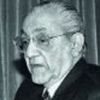No respect for parliamentary system in India
The parliamentary system places enormous power in the hands of the government.

The divorce between the letter of the Indian Constitution and conventions of the parliamentary system on which it is based was vividly reflected in the Modi government’s decision to postpone Parliament’s Winter Session until the Gujarat elections were over.
Parliament is not a legislative machine. It is the grand inquest of the nation, which ensures the government’s accountability. Consider the following instance and one gets a good sense of the enormous respect in which the parliamentary system’s rules and conventions are held, even when the nation’s independence is under dire threat.
On June 25, 1941, during the Second World War, a motion was moved in the British House of Commons by an influential Conservative MP: “(T)his House, while paying tribute to the heroism and endurance of the armed forces of the Crown in circumstances of exceptional difficulty, has no confidence in the central direction of the war.” It was supported by admiral of the fleet Sir Roger Kayes, a friend of Prime Minister Churchill and a former secretary of war Hore-Belisha. The war in Egypt was steadily worsening, and it was believed that Cairo and Alexandria would soon fall to Rommel’s forces. The mover informed Churchill that he was prepared to withdraw his motion if the critical situation in Egypt rendered public discussion untimely. The war Cabinet rejected the offer. The debate went on till 3 am and was resumed on July 2.
Churchill’s reply bears recalling. “What a remarkable example it has been of the unbridled freedom of our parliamentary institutions in time of war! Everything that could be thought of or raked up has been used to weaken confidence in the government, has been used to prove that ministers are incompetent and to weaken their confidence in themselves, to make the Army distrust the backing it is getting from the civil power, to make the workmen lose confidence in the weapons they are striving so hard to make, to present the government as a set of nonentities over whom the Prime Minister towers, and then to undermine him in his own heart, and, if possible, before the eyes of the nation. All this poured out by cable and radio to all parts of the world, to the distress of all our friends and to the delight of all our foes! I am in favour of this freedom, which no other country would use, or dare to use, in times of mortal peril, such as those through which we are passing.” The motion was defeated, but the movers had left nothing unsaid.
The parliamentary system places enormous power in the hands of the government. But “it is not a power which can be seriously abused; for abuse would lead to retribution at the hands of the House of Commons or the electorate”.
Thanks to the curb imposed by democracy, the parliamentary system “does not require constitutional limitations upon parliamentary authority”.
If constitutional limitations have failed to work in India, it is because the sanction of public opinion is weak and MPs of the ruling party prize partisan gain over loyalty to constitutional values. Article 85 of India’s Constitution says: “The President shall from time to time summon each House of Parliament to meet at such time and place as he thinks fit, but six months shall not intervene between its last sitting in one session and the date appointed for its first sitting in the next session.”
Since 1969, successive governments of all political parties have ensured that the office is occupied by one who will not rock the boat. However, the power is there.
Deliberately delaying summoning Parliament is just one facet of the problem. The Congress began this practice; the BJP developed it further. And, pray, what business did the Lok Sabha conduct after it was convened? The Congress held up the proceedings in protest over Narendra Modi’s slanderous remarks alleging a plot to overthrow him.
Disorderly behaviour is a symptom of the disease as is Mr Modi’s slander. The disease is the weakening of the democratic process. Its foundation is accord on the basis of mutual respect, but this is all but gone.
By arrangement with Dawn
